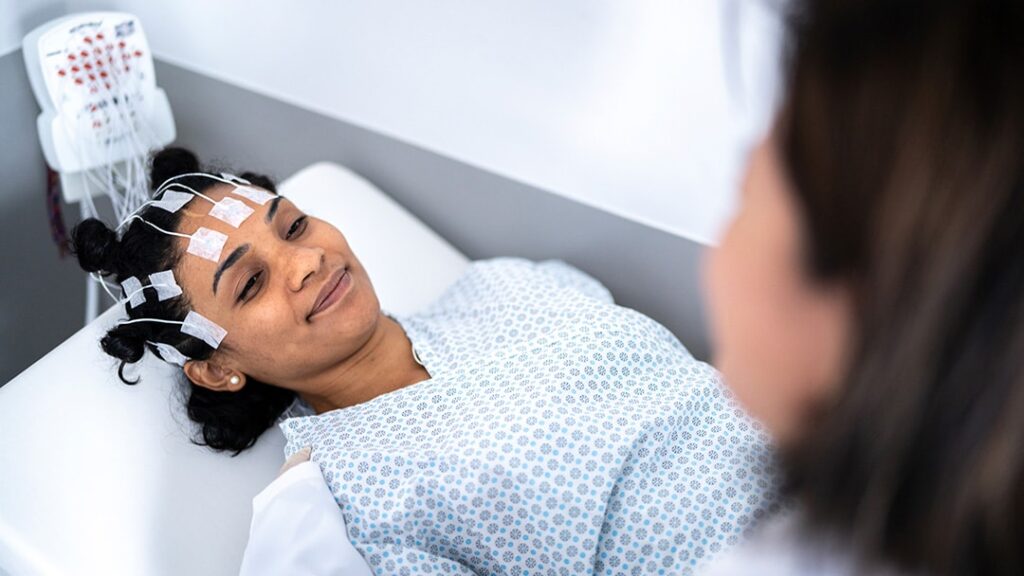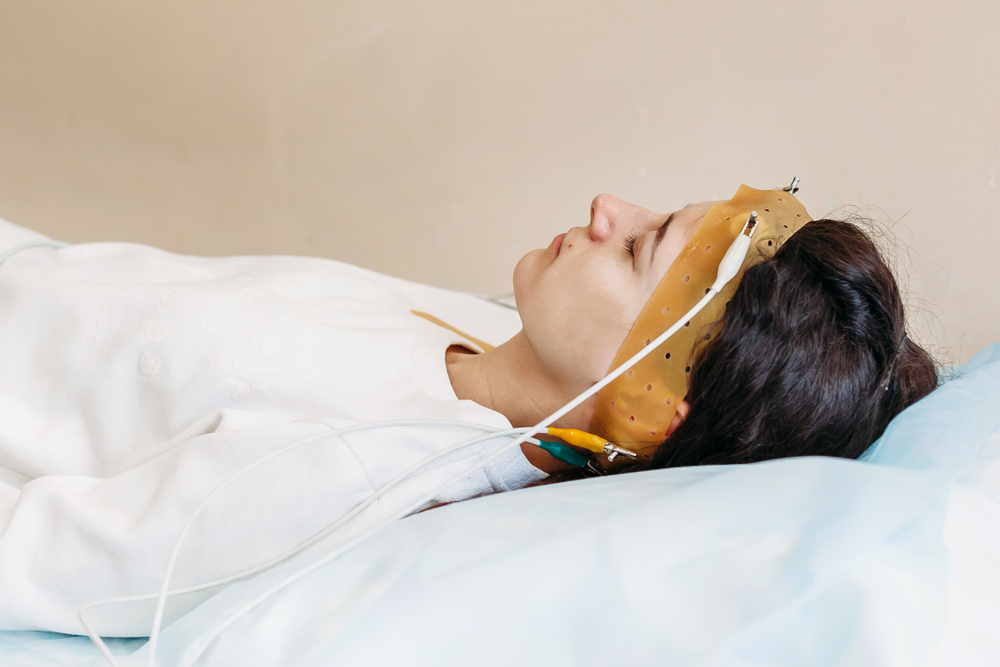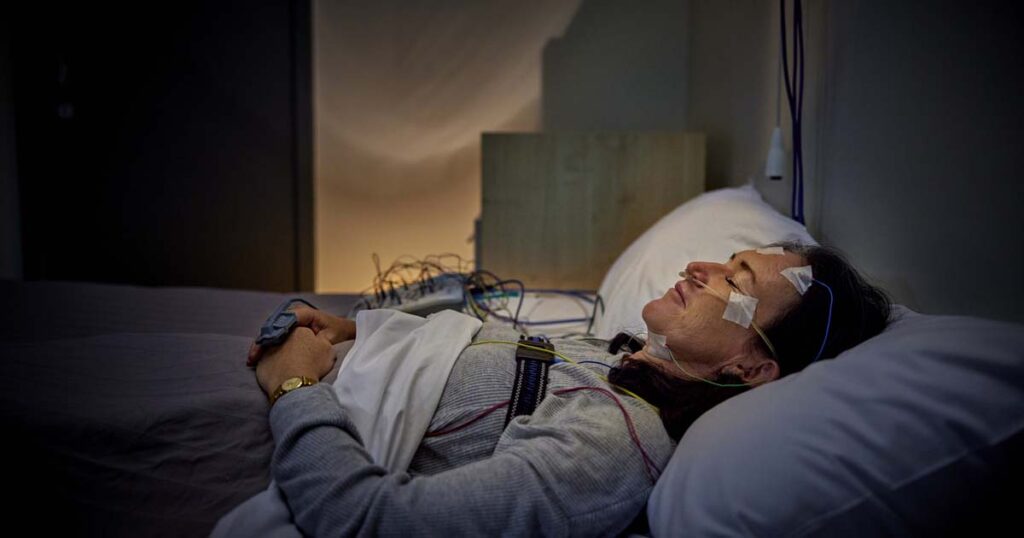Sleep studies play a crucial role in diagnosing and treating sleep disorders. However, one important aspect that cannot be overlooked is the cost associated with these assessments. In this article, we will delve into the financial aspect of sleep studies, understanding their importance, breaking down the costs involved, examining factors influencing the cost, and exploring ways to manage these expenses.
Understanding the Importance of Sleep Studies
Sleep studies are essential tools for healthcare professionals to evaluate and diagnose sleep disorders. By monitoring various aspects of sleep, such as brain wave activity, eye movements, heart rate, and breathing patterns, these studies provide valuable insights into an individual’s sleep quality and identify issues like sleep apnea, insomnia, narcolepsy, and restless legs syndrome.
Understanding the cost of sleep study can help individuals make informed decisions about their healthcare. Sleep study costs typically include initial consultation fees, in-lab sleep study costs, and home sleep test costs.
Furthermore, sleep studies play a crucial role in understanding the complexities of sleep architecture. They help in distinguishing between different stages of sleep, such as rapid eye movement (REM) sleep and non-REM sleep, shedding light on how these stages contribute to overall restorative rest.
The Role of Sleep Studies in Health
Healthy sleep is vital for our overall well-being. A good night’s sleep helps regulate bodily functions, supports cognitive functions, improves mood, and enhances overall productivity and quality of life. Sleep studies help identify disruptions in sleep patterns and provide crucial information for accurate diagnosis and effective treatment.
Moreover, sleep studies are instrumental in assessing the impact of lifestyle factors on sleep quality. They can reveal how habits like caffeine consumption, screen time before bed, and irregular sleep schedules affect the duration and quality of sleep, empowering individuals to make informed choices for better sleep hygiene.

Why Sleep Studies are Necessary
Sleep disorders can have serious consequences if left untreated. Chronic sleep deprivation can lead to increased risks of cardiovascular diseases, diabetes, obesity, and mental health issues. Identifying and addressing sleep disorders through sleep studies is vital for maintaining optimal health and preventing long-term health complications.
Additionally, sleep studies contribute to ongoing research in the field of sleep medicine, helping scientists and healthcare providers develop innovative treatments and interventions for a wide range of sleep disorders. By continuously expanding our understanding of sleep through these studies, we can improve the quality of care and support available to individuals struggling with sleep-related issues.
Breaking Down the Cost of Sleep Studies
When considering the cost of sleep studies, it’s essential to delve deeper into the factors that can influence pricing. Various elements can impact the overall cost, such as the level of expertise of the healthcare professionals involved, the technology and equipment used during the study, and the duration of the monitoring process. These factors can contribute to the variability in pricing across different healthcare providers and facilities. Learn more about Private Sleep Study Cost: Understanding Expenses for Private Sleep Assessments click https://sweetbrookberkshires.com/private-sleep-study-cost-understanding-expenses-for-private-sleep-assessments/
Initial Consultation Fees
Before undergoing a sleep study, patients often have an initial consultation with a healthcare professional specializing in sleep medicine. This consultation involves discussing symptoms, medical history, and evaluating the need for a sleep study. Some healthcare providers may charge consultation fees as part of the overall sleep study cost. Learn more about medical history, visit at https://hsl.osu.edu/dept/medical-heritage-center/what-is-medical-history.
During the initial consultation, healthcare providers may also conduct preliminary assessments to determine the most suitable type of sleep study for the patient. This personalized approach ensures that the recommended study aligns with the individual’s specific sleep concerns and medical history, optimizing the diagnostic process and treatment planning.
In-Lab Sleep Study Costs
An in-lab sleep study requires patients to spend a night at a sleep center, where specialized equipment monitors their sleep patterns. The costs associated with in-lab sleep studies can vary depending on the facility, location, and required equipment. It is essential to check with the sleep center and insurance provider to understand the specific costs involved.
Additionally, in-lab sleep studies offer a comprehensive evaluation of various sleep disorders, providing detailed insights into breathing patterns, brain activity, and body movements during sleep. The controlled environment of a sleep center allows healthcare professionals to observe and analyze these parameters accurately, aiding in the accurate diagnosis and treatment of sleep-related issues.
Home Sleep Test Costs
Home sleep tests provide a more convenient and cost-effective alternative to in-lab studies for certain sleep disorders. These tests involve wearing portable devices that monitor sleep patterns and collect data. While home sleep tests may be more affordable than in-lab studies, it is important to ensure their accuracy and suitability for the specific sleep disorder.
Moreover, home sleep tests offer the advantage of assessing an individual’s sleep patterns in their natural environment, potentially capturing more representative data compared to a sleep center setting. This can be particularly beneficial for individuals who experience variations in their sleep patterns based on their home environment and daily routines.
Factors Influencing the Cost of Sleep Studies
Several factors can influence the overall cost of sleep studies, making it important to consider these variables when assessing the financial aspect.
When delving into the realm of sleep studies, it’s essential to understand the intricate web of factors that can impact the overall cost of this diagnostic procedure. Beyond the basic expenses, there are nuances that can significantly sway the financial scale, requiring a discerning eye to navigate through the potential costs involved.
Geographic Location and Cost Variations
The cost of sleep studies can vary significantly depending on the geographic location. Urban areas and regions with higher costs of living may generally have higher sleep study expenses. It is advisable to research multiple sleep centers and compare prices to find the most cost-effective option without compromising on quality.
Moreover, the geographic location can also influence the availability of specialized sleep centers and experienced professionals, which can further impact the overall cost. While urban areas may boast a higher price tag, the accessibility to cutting-edge technology and expert care might justify the expenditure for individuals seeking top-notch sleep study services. Learn more about cutting-edge technology click here.
The Impact of Insurance on Sleep Study Costs
Insurance coverage plays a significant role in determining the out-of-pocket costs for sleep studies. Different insurance providers have varying policies regarding sleep study coverage. Some plans may cover the entire cost, while others may have copayments or deductibles. Understanding the terms of insurance coverage and contacting your insurance provider is crucial for budgeting for sleep studies.
Furthermore, the intricacies of insurance policies can add layers of complexity to the cost considerations. Factors such as pre-authorization requirements, in-network providers, and coverage limitations can all influence the final financial burden on individuals undergoing sleep studies, underscoring the importance of thorough insurance comprehension.

Additional Costs: Medications and Follow-ups
In some cases, sleep studies may require specific medications or follow-up appointments. These additional costs should also be considered when assessing the overall financial aspect of sleep assessments.
Delving deeper into the financial landscape of sleep studies unveils the potential for additional costs beyond the basic procedure. From specialized medications to post-assessment follow-ups, these supplementary expenses can catch individuals off guard if not factored into the initial budgeting process. Being cognizant of these potential add-ons is crucial for a comprehensive understanding of the financial implications of undergoing a sleep study.
Ways to Manage the Cost of Sleep Studies
While sleep studies may incur expenses, there are ways to manage and reduce these costs. In this article, we will explore some additional strategies that can help individuals navigate the financial aspect of sleep studies.
Insurance Coverage and Sleep Studies
Research and compare insurance plans that offer comprehensive coverage for sleep studies. Choosing a plan that covers a significant portion of the costs can help reduce the financial burden. Additionally, it is essential to follow the insurance provider’s guidelines and ensure the sleep center is in-network to maximize coverage benefits.
Moreover, it is worth noting that some insurance plans may require a referral from a primary care physician before approving coverage for sleep studies. Therefore, it is crucial to communicate with your healthcare provider to ensure a smooth and hassle-free process.
Payment Plans and Financing Options
Many sleep centers offer payment plans or financing options to help individuals manage the cost of sleep studies. These arrangements often allow for the spreading of payments over an extended period, making the expenses more manageable. Before committing to any payment option, it is crucial to understand the terms and conditions and ensure they fit within your budget.
Furthermore, some sleep centers may offer discounts or reduced rates for individuals who pay for their sleep studies upfront. Inquiring about such options can potentially result in significant cost savings.
Low-Cost or Free Sleep Study Options
In certain cases, low-cost or free sleep study options may be available. Researching community clinics, research studies, or healthcare programs specifically designed to provide sleep assessments at reduced or no cost can be beneficial for individuals with a limited budget.
Additionally, some sleep centers collaborate with universities or research institutions to conduct studies on sleep disorders. Participating in these research studies not only provides individuals with access to sleep assessments at a reduced cost or no cost but also contributes to the advancement of scientific knowledge in the field of sleep medicine.
It is important to prioritize our sleep health and address any potential sleep disorders promptly. While the cost of sleep studies may pose financial concerns, understanding the importance of these assessments and exploring ways to manage the expenses can help individuals make informed decisions about their healthcare. By taking advantage of insurance coverage, payment plans, financing options, and low-cost or free sleep study options, individuals can ensure that their sleep health is not compromised due to financial constraints.
